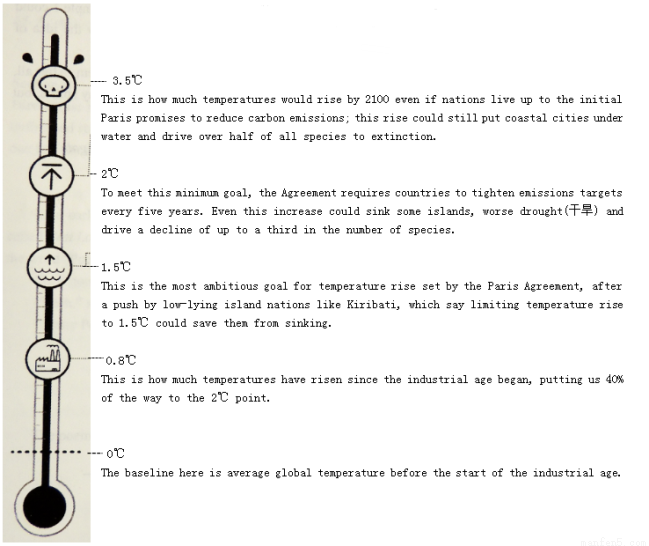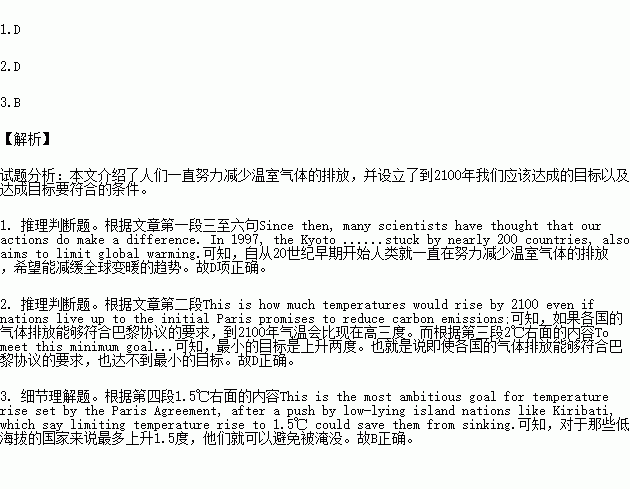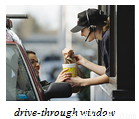题目内容
Is there link between humans and climate change or not? This question was first studied in the early 1900s. Since then, many scientists have thought that our actions do make a difference. In 1997, the Kyoto Protocol explained our role in the Earth’s changing atmosphere and set international limits for gas emissions(排放) from 2008 to 2012. Some countries have decided to continue these reductions until 2020. More recently, the Paris Agreement, stuck by nearly 200 countries, also aims to limit global warming. But just now how much warmer it will get depends on how deeply countries cut carbon emissions.
 1.It can be concluded from paragraph 1 that ________.
1.It can be concluded from paragraph 1 that ________.
A. the problem of global warming will have been quite solved by 2020
B. gas emissions have been effectively reduced in developed countries
C. the Paris Agreements is more influential than the Kyoto Protocol
D. humans have made continuous efforts to slow down global warming
2.If nations could only keep the initial promises of the Paris Agreement, what would happen by the year 2100?
A. The human population would increase by one third.
B. Little over 50% of all species would still exist.
C. Nations would not need to tighten their emissions targets.
D. The Agreement’s minimum goal would not be reached.
3.If those island nations not far above sea level are to survive, the maximum temperature rise, since the start of the industrial age, should be_______.
A. 0.8℃B. 1.5℃C. 2℃D. 3.5℃
 阅读快车系列答案
阅读快车系列答案

